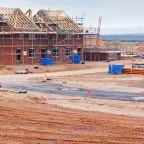
Highway maintenance budgets agreed
Devon County Council’s Cabinet today (Wednesday 13 April) agreed its highway maintenance budgets for this financial year.
The Council has received £38.785 million of funding from the Department for Transport for capital maintenance of its highway network, the longest of any authority in the country at 8,000 miles. Cabinet decided how the money will be used for structural repairs that extend the life of everything that makes up the highway, including repairs to road surfaces, retaining walls, bridges, and street lighting.
In addition, Councillors also approved the spending of a separate revenue budget of £26.975 million, funded from Council Tax, Business Rates and a decreasing amount from the Government Revenue Support Grant. The Highway Revenue Budget pays for reactive work such as repairs to large potholes, winter and emergency events, cutting back vegetation, gully emptying and ditch cleaning.
Cabinet discussed how the level of capital funding is not enough to bring all of the highway network up to a good state of repair. Devon needs about £86 million of capital funding a year to maintain all elements of the highway in a steady state and it was recognised that the grant from Government of about £39 million leaves some minor roads in poor condition. However, the revenue funding is used to keep the network safe by repairing significant defects that could cause a safety risk.
To make the most of the available funding, information on network condition is used to select the right type of work to be carried out at the right time in the life of a road. The development of the Devon Highway Strategy has also helped stretch the available funding as far as possible. By working in partnership with its contractor, year on year efficiencies have been delivered and, on average, costs of planned works have been cut by 3% a year in recent years through the use of new technology and new working methods.
Around £14.1 million is being invested in surface dressing and patching of the county’s roads. £1 million is earmarked for spray injection patching which was trialled successfully last year and can provide a cost effective solution for minor, rural roads where trials have shown that it can saves up to 20% on conventional patching and dressing work.
£1.7 million is being allocated in pavement repairs, which includes a significant programme of slurry seal selected sites across the county – to seal and prolong the life of footways.
Major capital schemes this financial year including resurfacing various sites on the A388 from Stibb Cross to Holsworthy, reconstruction of Powderham Arch on the A379, and structural repairs on the A377 at High Bickington and A383 at Vicarage Hill at Kingsteignton.
Councillor Stuart Hughes, Devon County Council Cabinet Member for Highway Management, said: “With the continued reduction in funding from central Government, we need to ensure the delivery of our highway maintenance is as efficient as possible. Finding different ways of working, using new technologies, as well as working more closely with communities are all part of that. We have been targeting busier routes with some success, and surveys show that only 2 to 3% of the A and B road network is in need of structural maintenance soon.
“Most of Devon’s road network is made up of minor roads and the condition of these remains a concern with about a quarter in need of structural repair. With the capital funding from Government providing just over half of the maintenance funding we need to keep our roads in their current condition, the overall condition of our network will continue to deteriorate. However, we will continue to undertake inspections and repairs to keep these roads safe.”
More details on the approved programmes of Capital and Revenue work is published on the Devon County Council website at: http://democracy.devon.gov.uk/ieListDocuments.aspx?CId=133&MId=158&Ver=4


















